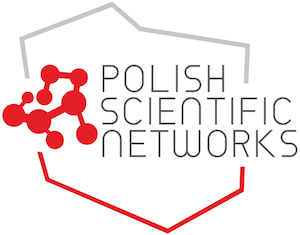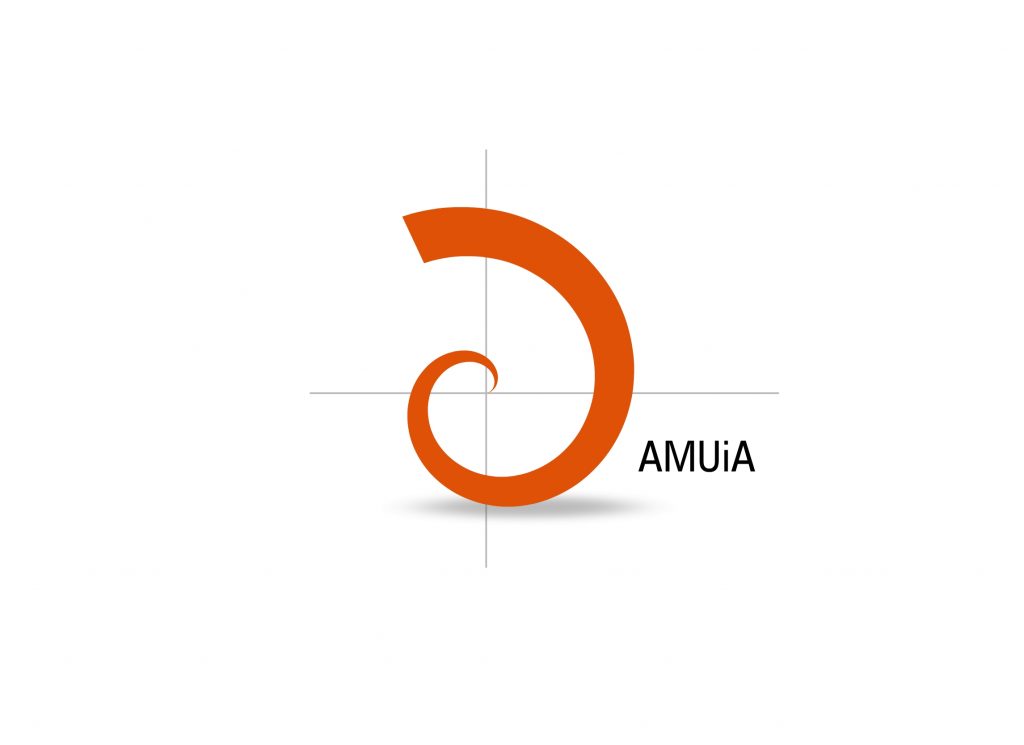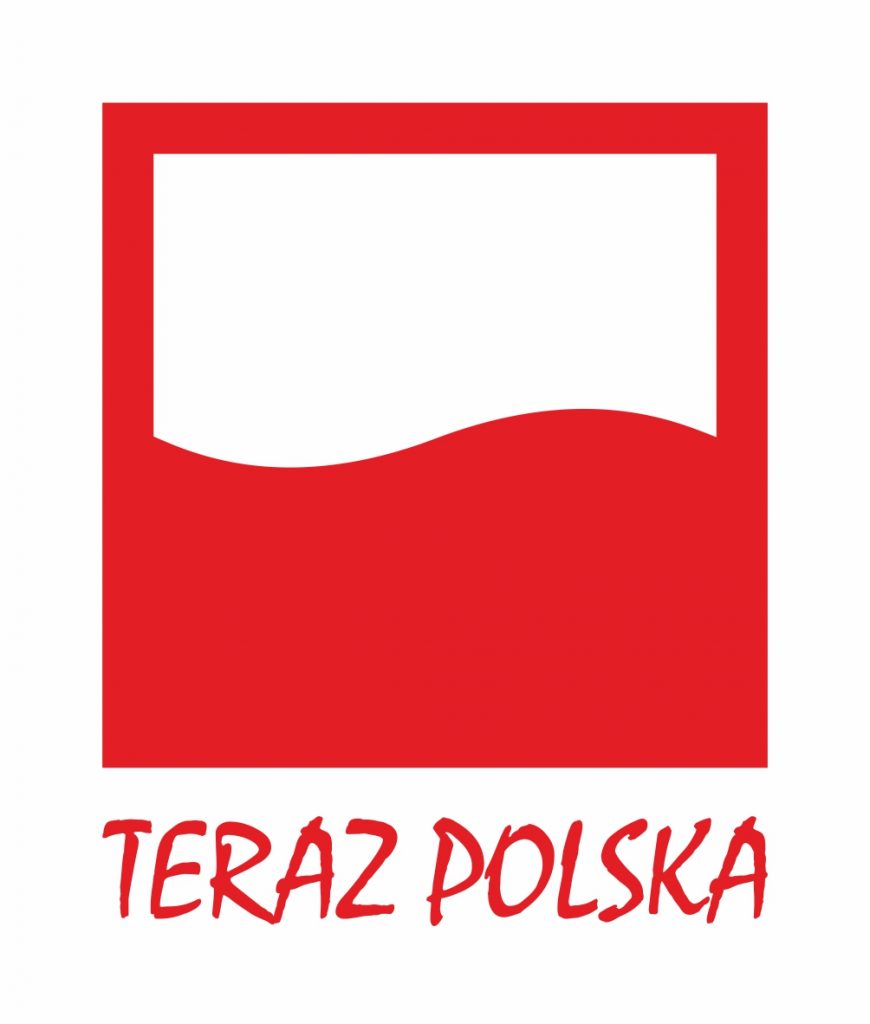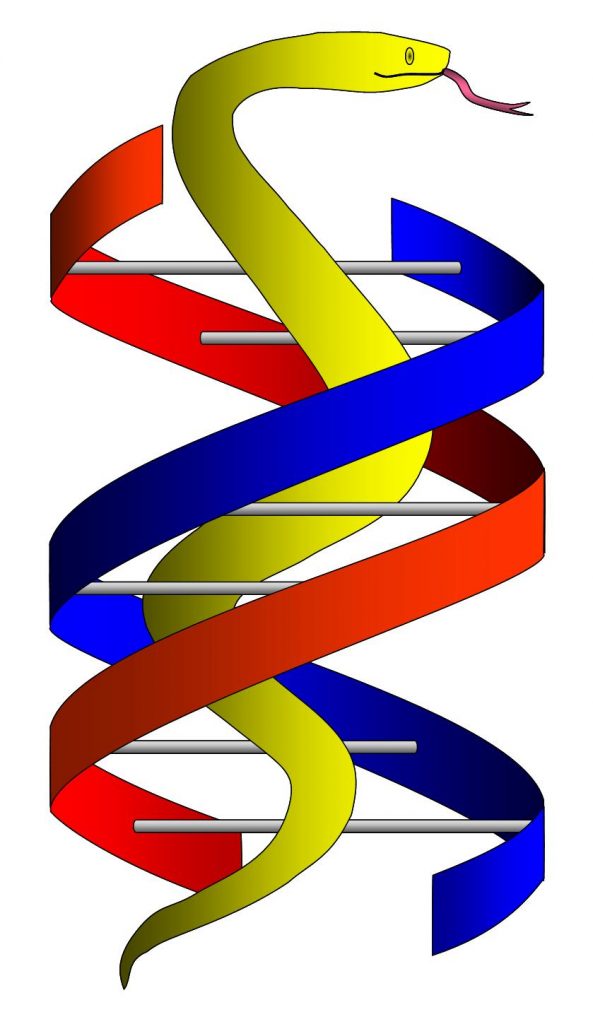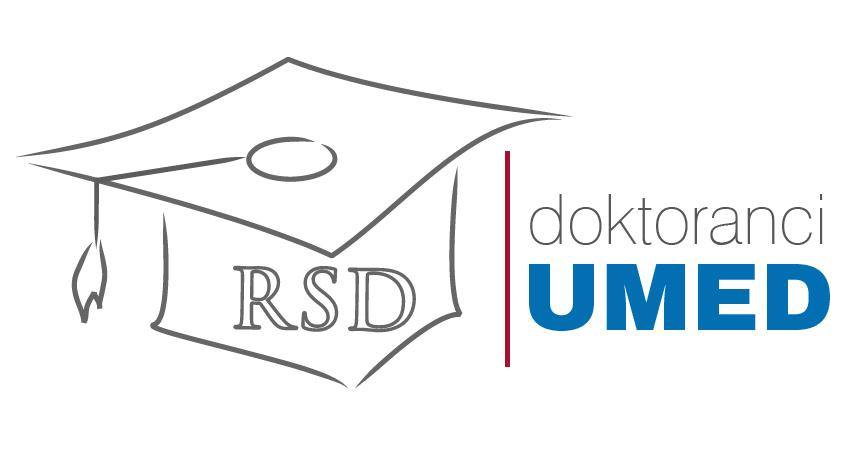Organizers
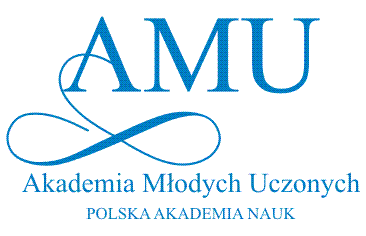
The Polish Young Academy (PYA) was constituted under the Polish Academy of Sciences (PAS) Parliamentary Act of April 30, 2010. It is a part of the PAS corporation and was established thanks to the effort of the PAS authorities inspired by the activity of similar bodies in other countries.One of the PYA’s tasks is to promote the activation of the young scientific community, in particular:
• participating in the formation of science policy
• promoting scientific excellence
• disseminating scientific results.
Selection procedure of the PYA members is based on the election procedures for the PAS members, main criterion being the candidate’s outstanding scientific achievements. PYA members are nominated for 5 years, without a possibility of re-election. Each PYA member can contribute to the work of the PAS by participating in the work of divisions, branches, scientific committees and task force committees.
PYA is formed by leaders in respective scientific domains – scientists that have typically already been honoured with other prestigious awards and distinctions, including recipients of the European Research Council grants, the Ministry of Science and Higher Education Scholarships or the Foundation for Polish Science programmes. Despite their young age, many of them have already been appointed or awarded a professor title.
PYA is actively involved in consultations regarding science and higher education policy, including “Law 2.0”. PYA was represented in the Council of the National Congress of Science (NCS) and participated in the NCS conferences. Members of PYA were also involved in consultations conducted by the Policy Support Facility, a group assigned by the Ministry of Science and Higher Education with a peer review of Poland’s higher education and science system, and in consultations regarding programmes supporting internationalization of Polish science, proposed by the newly founded National Agency for Academic Exchange.
In an effort to promote scientific excellence, PYA supports the mobility of Polish scientists. This activity is illustrated e.g. by the report on national and foreign mobility of scientists, published in 2015 in cooperation with “Nauka Ludzka Rzecz” Initiative. Cooperation and mobility of scientists was also the main topic of the 1st edition of Polish Scientific Networks conference (PSN, Warsaw, June 16 -18 2015), organized, as well as the next editions, in cooperation with the Ministry of Science and Higher Education and the Association of the Foundation for Polish Science Scholars. Intersectorial mobility was, in turn, the topic of the PSN: Science and Business, meeting held in Wrocław a year later (June 30 – July 1, 2016). PYA also cares about building competence of young scientists. For that purpose, PYA organizes annually summer schools Forge of Young Talents (Kuźnia Młodych Talentów) addressed to PhD students specializing in life and exact sciences and developing so called soft skills.
In order to encourage new generations to practice science, PYA actively supports its popularization. For many years, PYA members have been taking part in Science Festivals in different Polish cities, in Warsaw Science Picnic, in European Researchers’ Night in Olsztyn, etc. PYA has also initiated Flying Scientific Cafes (Latające Kawiarenki Naukowe), popular science meetings that are mainly addressed to children and school youth.
Since May 2017, PYA counts only 15 members. This situation is, however, only temporary: in 2019, new members will join. The call for applications will be open since autumn of 2018.More information: http://www.amu.pan.pl/

ASSOCIATION OF THE FOUNDATION FOR POLISH SCIENCE (FPS) SCHOLARS unifies laureates of postdoctoral scholarship programmes of the Foundation for Polish Science. Among the Association’s aims are the interdisciplinary and intergenerational integration of FPS Scholars, actions aimed at supporting science and popularizing the ethos of a scientist and teacher, promoting of good scientific practice and improving qualifications, as well as supporting scholars in critical situations.
The Association, initially named Association of the Foundation for Polish Science Foreign Scholars, was founded in 2000, during a meeting organized by the Foundation for Polish Science attended by laureates of the Foundation postdoctoral scholarship programme KOLUMB. Initially, the Association was established as an informal group of young scientists, whose postdoctoral training in foreign research centres was financed by the Foundation. In April 2003, the Association was officially registered as an association. In December 2009 the Association, following the establishment of different postdoctoral scholarship programmes of FPS, was joined by laureates of several other Foundation programmes, such as Homing (later replaced by Homing-Plus), Focus, Ideas, Team, Master, Welcome, and – in May 2014 – by the laureates of the programme Bridge, who have completed at least 6 months long fellowship in a foreign research centre. Since May 2016, laureates of all types of TEAM programmes are also welcomed among FPS scholars. At the same time, in 2009, the association was renamed as the Association of FPS scholars.
The Association’s activity manifests mainly in the organization of meetings and conferences, both informal and formal, that support scientific cooperation – interdisciplinar, international and intersectorial, including the series of Polish Interdisciplinary Symposia Inter-Mix and the Polish Scientific Networks conference, that addresses scholars interested in applying research in practice. Every year, in May members of the Association meet during the Annual Alumni Congress, organized in different academic centres in Poland. The Congresses are an excellent occasion for the presentation of most recent research results, scientific discussions, as well as to maintain contacts and friendships. Additionally, members of the Association have been engaged in the debate about the reorganization of science in Poland for many years, as part of advisory bodies or as experts in panels and conferences dedicated to this issue.
The history of the Association has been marked with a painful event – a tragic death of dr Artur Rojszczak, founder and animator of the Association. In his memory, the Association has established an award named after dr Rojszczak. The award is granted to young doctors who stand out not only with prominent scientific achievements, but also with a humanistic attitude towards the world, broad horizons and the ability to break down barriers and to surpass the framework of narrow scientific specializations. The awarding ceremony of Artur Rojszczak Award takes place every year during the Annual Congress of the Association.
klub-fnp.pl

The Ministry of Science and Higher Education supports the development of Polish universities, research institutes and the Polish Academy of Sciences science institutes. Pursuing policy in the area of science and higher education, the Ministry prepares strategic solutions and oversees the implementation of EU programs and the use of European funds.
At present, over 400 public and private universities operate in Poland. The Ministry of Science and Higher Education supervises most of them. The Ministry handles the affairs of students, universities and scientists. The scope of cooperation between the Ministry and the universities is regulated by the Law on Higher Education act, and the relations between the Ministry and research institutes are regulated by the Law on Research Institutes act.
The Ministry of Science and Higher Education also has at its disposal the budget allocated to science and higher education, established annually by the Council of Ministers. The rules for financing higher schools and research institutes are regulated by the act on Principles of Financing Science. The ministerial funds are used to finance, among others, statutory activities, science scholarships and material aid.Priorities of the Ministry of Science and Higher Education
Ministry’s priority is to improve the functioning of Polish universities and scientific units and, ultimately, to make Polish science and higher education modern and competitive on international level.
Despite the Ministry’s surveillance and broadly defined cooperation, Polish universities are granted extensive autonomy. To further improve their functioning, and to take action to resolve existing problems of higher education and science, the Ministry, in close cooperation with academic community, created the Constitution for Science – project aimed at radical, but gradual reform of Polish higher education system. The new law introduces changes designed to strengthen the position of Poland in the global race, to improve the quality of Polish academic and vocational studies, to stop the exodus of Polish scientists and students, to allow for a balanced development of universities in Poland, and to improve the working conditions of university employees and deliver innovations and research necessary for the implementation of Strategy for Responsible Development. The law will enter into force on October 1, 2018.
The Constitution for Science introduces new, consistent and clear regulations concerning the entire existing science and higher education system. It offers, for instance, a new model of obtaining a doctoral degree for PhD students, who soon will constitute Polish intellectual elite. The model is based on two possible modes of procedures – PhD studies in doctoral schools or an external mode. The law introduces a universal scholarship system for PhD students. Optimal conditions for scientific research for PhD students are also created by the “introductory doctorate” programme, which aids the development of PhD theses that improve the operation of the companies hiring participants of doctoral studies. Additionally, the graduate will receive double salary: one – for the work in the company, and the other – as a scholarship funded by the Ministry.A key objective of the Ministry is an increase in the innovativeness of the Polish economy by enabling a more efficient cooperation between the sectors of science and business. The efforts are, at one hand, made to encourage scientists to participate in the industrial processes, and, on the other, to facilitate scientific research for the companies – by, among others, favourable fiscal policies, offered by two laws on innovativeness already implemented by the Ministry of Science and Higher Education.
Aside from the deregulation and innovativeness, the Ministry concentrates on supporting development of the liberal arts in Poland. Polish scientists may apply for funding for research in two new modules: National Heritage and Universals. This way, scholars have the opportunity to focus on problems important for Polish culture, on popularizing achievements of Polish liberal arts outside of the country, and on gaining access to yet untranslated foreign works. In the process of supporting human sciences, the role of National Science Centre has been enhanced, and its actions gained integrity and complementarity with actions of the Ministry. National Programme for the Developments of Humanities is a grant programme unique on European scale, addressed solely to humanists. Grants are awarded for traditional research and translatory works.
In October 2017, National Agency for Academic Exchange initiated its activity for internationalization of Polish science by supporting international scientific cooperation and academic exchange. Students, PhD students, young scientists, science institutions and non-governmental organizations can benefit from scholarships and grant programmes. Another pillar of the Agency’s activity is the popularization of Polish language abroad and the enforcement of its position as a foreign language.Executive agencies of the Ministry
As a public administration authority, the Ministry holds only a fraction of funds allocated to Polish science. Some funds are also governed by two executive agencies. Polish grant system favours interdisciplinary cooperation and undertaking novel and innovative activities. Competitions allow for the selection of projects and research with the greatest scientific and implementation potential.
The National Centre for Research and Development implements actions regarding scientific, technical and innovative national policy. Competitions announced by the Centre focus mainly on applied research, research and development studies and implementation actions. The competitions are very often highly specialized, pertaining to specific domains (Innochem, Innomed), and force the participants to cooperate with corporations and business (Lider).
The National Science Centre is a government executive agency set up to fund basic research. Among a wide variety of competitions, propositions can be found both for PhD students (Etiuda programme) and for young scientists and experienced researchers (Maestro programme). With Polonez programme, the Centre encourages also foreign researchers to carry out research in Poland.
Both agencies cooperate, implementing projects that fully utilize both basic and applied research (Tango programme).Ministerial advisory bodies and institution
One of the fundamental rules of the Ministry of Science and Higher Education is maintaining constant connection with academic environment and using the rich experience of scholars and administrative employees of specific units. Therefore, numerous advisory bodies exist alongside the Ministry, supporting the creation of development strategies and the day to day business.
The General Council for Science and Higher Education is an elective body representative of the environment of science and higher education. The Council delivers opinions on matters of higher education, science, culture and education; it also evaluates laws proposed by the Ministry.
The major task of the Scientific Policy Committee is to assist the minister in the preparation of documents pertaining to the development of science, science policy and innovation policy, state budget drafts and financial plans that establish financial resources for science, national and foreign investment priorities, and to give advisory opinions on draft laws regarding science development and innovation, National Science Centre and National Centre for Research and Development establishment plans, and to prepare the assessment of their activity reports.
Evaluation of the quality of research conducted in Poland is performed by the Committee for Evaluation of Scientific Units. The parametric assessment performed by the Committee allows to assign units to appropriate categories in order to determine, among others, the level of financial support granted by the Ministry of Science and Higher Education.
The Polish Accreditation Committee is watching over the quality of education at the universities. Members of the Committee are elected from the employees of universities and employers’ organizations. PAC is independent from the Ministry and, apart from the evaluation, it issues decisions on the establishment of new courses of studies.The Ministry improves the quality of Polish science and higher education by creating ministerial programmes and competitions. We reward the best, support good practices and create good standards. We help promising students accelerate their scientific career and support research teams.
For instance: every year, 100 best students can be awarded the Diamond Grant. Award-winning students receive up to PLN 220 000 for their scientific research projects. Laureates can also cut short their career path and undertake doctoral study programmes even though they do not yet have a master title. The EU operational programme Knowledge-Education-Development, disposed of by the Ministry, allowed, among others, for the organization of competitions preparing students to enter the job market. In the Studiujesz? Praktykuj! Programme, universities can prearrange high quality, paid internships for students. As a result of the competition of September 2017, 196 projects for a total of PLN 268 000 000 were accepted for implementation. Competence Development Programme allows universities to implement specific courses that will aid the development of soft skills, useful in the professional career. In 2017, universities were implementing 207 projects selected in two editions of the competition (total amount PLN 230 700 000). Expanding professional and soft skills of the students will also be part of the implementation of Integrated University Programmes (in May 2017 competition, 138 projects were selected, for a total of PLN 1 300 000 000). In the Dual studies competition, announced in December 2017 with allocated PLN 100 000 000, the students will also receive financial resources for internships in the companies. The Ministry also carries out, outside of the competition, a vocational practice programme in Higher Vocational Schools. Students are given opportunity to participate in extended, 6-month long vocational practice (targeted number of students in the programme is 7000). Another non-competitive project, in the framework of POWER – Best of the best!, is a continuation of Generation of the Future programme. From the obtained funds, the students may cover the costs of participation in international championships, competitions and conferences. In the second, 2017 edition of the programme, the maximum funds was PLN 290 000 for a team and PLN 79 000 for an individual participant.More information at: nauka.gov.pl
Strategic partners
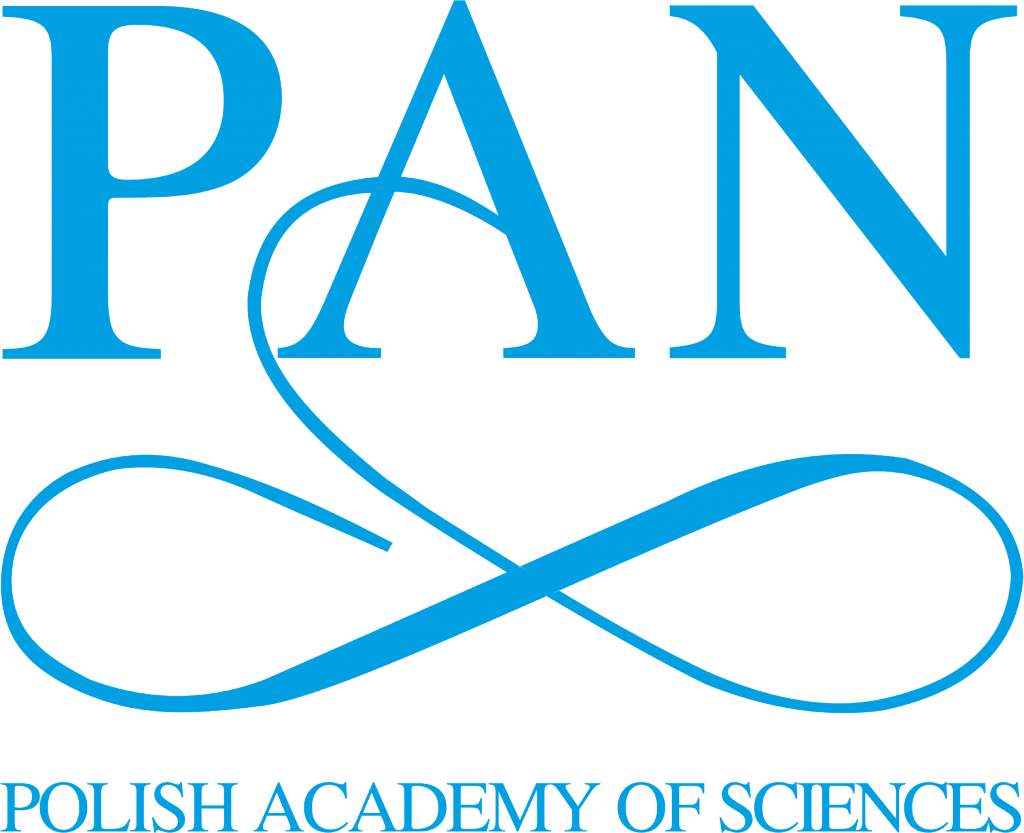
Polish Academy of Sciences (PAS), as the leading scientific institution in Poland, carries out comprehensive research activity aimed at the development, promotion, integration and popularization of science and the development of education, and also the enrichment of national culture. The Academy achieves these goals by carrying out advanced research of strategic importance for the development of science and economy, by organizing interdisciplinary research teams involved in the concentration of modern research apparatus, integrating Polish scientific community, educating academic staff, and by innovatively utilizing the results of scientific research, also in cooperation with economic entities, and by organizing scientific conferences and participating in science popularization events.
Structure of PAS unites traditional functions of autonomic scientific corporation with an academia that directly realizes research goals. This combination provides the possibility to create science by personal research involvement of PAS members affiliated in different research facilities. The corporation of scholars of the Academy includes:
• scientific committees, that on the grounds of their composition constitute the most representative scientific circle in the given discipline;
• task force committees, that are appropriately selected groups of experts, established to accomplish certain research tasks
• national committees, established in order to maintain and develop the cooperation with international scientific organizations,
• divisions, participating in the performance of tasks of the Academy within the scientific fields included in its scope, by the involvement of its members in the works of branches of the Academy, scientific committees, task force committees, and the boards of experts of the research institutions,
• territorial branches, established in order to perform the tasks of the Academy in a particular region of Poland, that above all integrate the academic life in the region of Poland in question,
• Scientific institutes, that are the basic organizational units of the corporation.
Gathered around departments, the institutes conduce international and internal research, both basic and applied, organize conferences, symposia and scientific lectures, provide financial services and perform the transfer of technology.
Recently, Polish Young Academy functions in the structure of PAS. Its tasks are centred around the activity for the activation of the young scientific community, by, among others, presentation of opinions and programmes related to the scientific issues, the organization of debates, discussions and scientific conferences, and the dissemination of scientific results.
Polish Academy of Sciences is also engaged in the publishing and expertise, provides access to the library, museum and archival stocks, organizes conferences, exhibitions and popular science lectures.
As the publishing activity, PAS ensures the continuity in the publishing of the scientific publications and journals most important in given specializations, a part of which are available in open access on the Academy’s web page. Science popularization activity involves, above all, open popular science lectures “Wszechnica”, participation in picnics and science festivals, nights of museums or book fairs; concerts and exhibitions are also organized periodically. PAS research units are actively involved in the preservation and restoration of material culture heritage and natural resources in Poland and abroad. The Academy’s institutions possess in their collections, among others, printed literary treasures, dating back to 15th century, that include early editions of Hevelius’ and Copernicus’ works and Marie Skłodowska Curie’s or Albert Einsteins’ letters. Biological collections, comprising unique plants and seed banks, are also not without significance.
For outstanding achievements, the Polish Academy of Sciences grants: Medal of the Polish Academy of Sciences, Nikolas Copernicus Medal, Stefan Banach Medal of the Polish Academy of Sciences and the Polish Academy of Sciences Statuette.
More information at: pan.pl
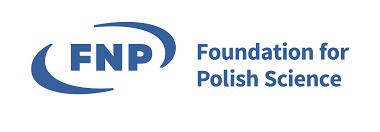
Foundation for Polish Science (FPS) has been in operation since 1991. It is a non-governmental, non-political, non-profit institution and the largest source of science funding in Poland outside of the state budget.
Foundation’s mission is to support outstanding scholars and research groups and to back innovative projects and the commercialization of research results.
The Foundation is offering prizes, scholarships and subsidies for scientists of any age, at all career stages, irrespective of the represented field of science.
Operating rules of FPS:
• to offer support directly to scholars and research groups
• all subventions, prizes and scholarships are awarded on the basis of a competition
• scientific excellence is the most important criterion in awarding of support
• assessment of the achievements of participants in the Foundation’s competitions is made by Polish and foreign scientists recognized in their field (peer-review method)
• the support is awarded according to the “Hard money” principle (strict accounting procedures for funding awarded)
The Foundation actively supports and promotes scientific mobility and international research cooperation, and many FPS laureates achieve international success. FPS collaborates with over 45 foreign scientific institutions and organizations. We are a member of European Foundation Centre (EFC) and Science Europe.
Foundation’s statutory activities are funded from its own resources, including donations of 1% of income taxes, private donations and European funds. In 2008, the Foundation began the realization of programmes founded by the European Regional Development Fund under the Operational Programme Innovative Economy, and in 2011 it started the SKILLS project, financed from the Operational Programme Human Capital funds. At the end of 2015 and at the beginning of 2016, the Foundation launched new projects financed from the Operational Programme Smart Growth: International Research Agendas, TEAM, TEAM-TECH, FIRST TEAM, HOMING and POWROTY.
Detailed information on the programmes can be found on www.fnp.org.pl

The Medical University of Lodz (www.umed.pl) is one of Poland’s largest medical universities, its tradition dating back to the 1940s. Nowadays, with five faculties and sixteen programmes, its student body consists of over 9 500 students. The education offer comprises also programmes with English as lecturing language, with 750 foreign students enrolled in the programmes of medicine, dentistry and postgraduate studies. The University’s clinical facilities include three renowned hospitals, all of them highly rated in national rankings.
The Medical University of Lodz is heavily involved in the academic life of the city of Lodz and the whole country. The University provides education to future doctors and specialists in medical and paramedical fields, carries out research and development studies, and provides research services. In order to accommodate to the job market shifts, the University’s educational offer is constantly adjusted and broadened.
The University’s research and development activities also show dynamic growth.
As reflected by top positions in rankings that evaluate both the publication and citation impact, the research conducted at the University is met with high interest and esteem.
The Medical University of Lodz has extensive experience in project management based on PRINCE2 methodology.
At present, the college is carrying out:
• 13 projects under structural funding for a total amount of PLN 48 000 000
• 85 scientific grants for a total amount of PLN 46 000 000
• 8 projects under the Strategmed Project
• 21 international projects (H2020, COST, 3 Program Zdrowia, KIC – EIT Health)
• 8 grand infrastructural projects for a total amount of over PLN 84 000 000
Scientific projects conducted in accordance with the principles of the knowledge triangle (education, research, innovation) are continued both in new, integrated curricula and in the cooperation with business. The University actively seeks and develops new schemes of cooperation with the external environment, by, among others, mapping out and testing potential solutions which can then be applied in clinical practice or public healthcare.
The medical University of Lodz is a renowned, attractive scientific and educational centre in the European research area, focused on promoting research and developing innovative health-promoting solutions for the epidemiological and socio-demographic challenges faced by our society. Healthy aging and active lifestyle are strategic areas of development of the University. 2011 marks the foundation of the Healthy Aging Research Centre (HARC), and since 2015 the University is a member of the international EIT health consortium (www.eithealth.eu) with aim to support entrepreneurship and create innovations in the areas of healthy lifestyle and active aging, as well as seeking ways to improve the quality of life in Europe.
More information at: umed.lodz.pl
Partners
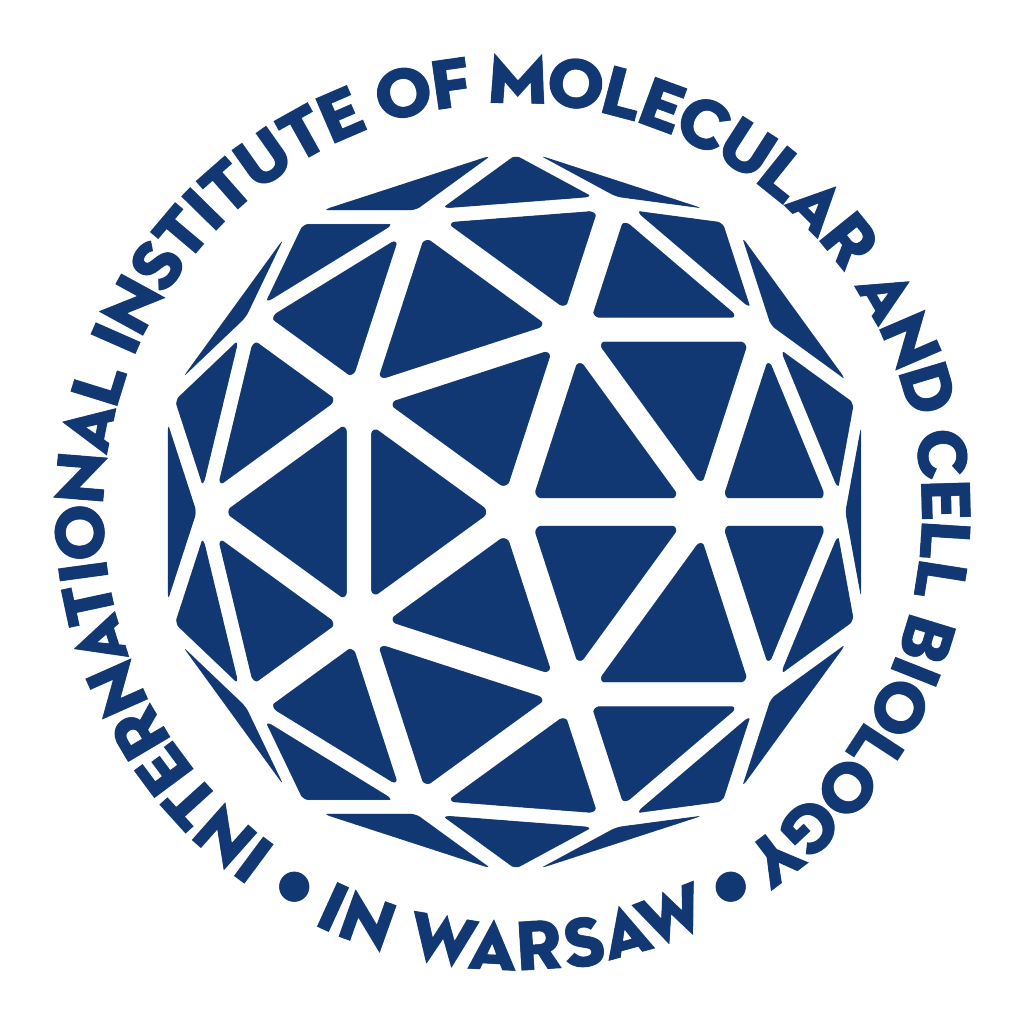 The International Institute of Molecular and Cell Biology in Warsaw (IIMCB) was founded as an innovative research center, with rules of operation that are similar to leading scientific institutions throughout the world. IIMCB is one of Poland’s most modern research institutes in the life sciences, holding the highest scientific category (A+) based on a parametric evaluation of research entities in Poland by the Ministry of Science and Higher Education.
The International Institute of Molecular and Cell Biology in Warsaw (IIMCB) was founded as an innovative research center, with rules of operation that are similar to leading scientific institutions throughout the world. IIMCB is one of Poland’s most modern research institutes in the life sciences, holding the highest scientific category (A+) based on a parametric evaluation of research entities in Poland by the Ministry of Science and Higher Education.
The main goals of IIMCB are to perform high-quality research in molecular biomedicine and to create the best possible conditions for ambitious, motivated group leaders and their staff to implement modern biotechnology and teach and popularize molecular biology and medicine. Research topics at IIMCB cover a wide range of topics, including structural biology, molecular and cell biology, neurobiology, cancer biology, bioinformatics, computer modeling, iron homeostasis, developmental genomics (zebrafish model), ageing, and neurodegeneration.
Nine high-profile research groups and one partner laboratory comprise the present structure of the Institute:
- Laboratory of Structural Biology (M. Bochtler)
- Laboratory of Bioinformatics and Protein Engineering (J.M. Bujnicki)
- Laboratory of Molecular and Cellular Neurobiology (J. Jaworski)
- Laboratory of Neurodegeneration (J. Kuźnicki)
- Laboratory of Cell Biology (M. Miączyńska)
- Laboratory of Iron Homeostasis (K. Mleczko-Sanecka)
- Laboratory of Protein Structure (M. Nowotny)
- Laboratory of Protein Metabolism in Development and Aging (W. Pokrzywa)
- Laboratory of Zebrafish Developmental Genomics Max Planck/IIMCB Research Group (C.L. Winata)
- (External) Laboratory of Biomolecular Interactions and Transport (J. Brezovsky), located in AMU, Poznań, Poland
The international character of IIMCB is strongly reflected by all aspects of its functioning. All positions of laboratory leaders are filled through open international competitions, and successful candidates are selected by the International Advisory Board (IAB), a body that is unique to Polish research institutions that consists of renowned scientists and science managers. The IAB ensures that the Group Leaders’ selection process maintains full objectivity. International Advisory Board members also consult on the steering and functioning of the Institute. Open and highly competitive character of the Group Leader selection process and IIMCB’s achievements attract outstanding researchers from all over the world. The coming competition to be announced in November 2018 will address accomplished excellent investigator in molecular and cell biology who will be offered a Senior Group Leader position at IIMCB under the ERA Chairs Horizon2020 project. The new laboratory leader will strengthen scientific excellence of the Institute, enhance links between ongoing projects and contribute to the overall development of the Instituter, in a multinational and multicultural environment. Since 2013, the Institute has been a holder of the HR Excellence in Research Award. This prestigious recognition acknowledges IIMCB as an attractive place for researchers to work and develop their careers.
IIMCB has close scientific collaborations with world-renowned foreign research centers, such as the Max Planck Society (MPS). Under this strategic partnership, four laboratories were established with double MPS and IIMCB affiliations. The Institute also boasts cooperation with national research centers, including the Intercollegiate Faculty of Biotechnology at the University of Gdańsk/Medical University of Gdańsk, Museum and Institute of Zoology PAS in Warsaw, and Institute of Molecular Biology and Biotechnology at Adam Mickiewicz University in Poznań (AMU). Under this framework of cooperation, the Laboratory of Biomolecular Interactions and Transport AMU/IIMCB in Poznań was created. In addition to institutional agreements, IIMCB research groups develop individual international collaborations through common grants, regular contacts, exchange visits, and open seminars that are systematically organized to include outstanding invited speakers from all over the world.
IIMCB actively collaborates with pharmaceutical and biotechnology companies, such as OncoArendi Therapeutics, A&A Biotechnology, Adamed, Over Group, CelonPharma, UbiQ Bio, and IONIS, to develop new therapies in oncology and neurology and biotechnological products. Measures that are implemented by IIMCB to commercialize its inventions and serve as a resource for industrial partners are continually adapted to scientific output and the needs and expectations of commercial partners. The IIMCB commercializes it’s inventions and technologies in the life sciences, biotechnology, biomedicine, and bioinformatics. Numerous national and international grants and initiatives have resulted in several patent applications and license agreements. The patent applications and patents are transferred to Biotech Innovations Ltd (biotech-innovations.com), a special-purpose vehicle that is funded by IIMCB and is committed to turning scientific progress into marketable products and technologies and returning income to the inventors and IIMCB to support further research. IIMCB’s portfolio of inventions ranges from platforms that are open to the scientific community (e.g., services offered by the Bujnicki Laboratory at genesilico.pl) to inventions that are protected by worldwide patents.
The most advanced implementations of the research results to business practice:
- Auresine (auresine.com): a technology for the highly selective elimination of staphylococci bacteria using Auresine enzyme;
- Futurenzymes (futurenzymes.com): a technology of potential importance in medical diagnostics and genetic engineering, using restriction enzymes that specifically cut double-stranded RNA molecules;
- PRO Biostructures (com): service in the field of crystallography. The team has extensive experience in supporting drug discovery projects and other scientific endeavors with both biotechnology/pharmaceutical industry and academia. PRO Biostructures offers a complete range of protein crystallography services from gene to structure.
The Institute also actively supports social initiatives that serve groups of patients with particular diseases. It fostered two patient support organizations:
- Polish Association Supporting People with Inflammatory Bowel Disease “J-elita” (since 2005), which brings together families of patients with Crohn’s disease and Colitis;
- Polish Ciliary Dyskinesia Society (since 2011), which was initiated and further supported under two FP7 projects: HEALTH-PROT (RegPot) and BESTCILIA (a collaborative project that focused on better experimental screening and treatment for primary ciliary dyskinesia).
IIMCB is also engaged in science popularization initiatives to increase awareness and interest in the life sciences among the general public. The Center for Innovative Bioscience Education (BioCEN), an initiative that is supported by IIMCB, regularly hosts workshops with hands-on experiments and is engaged in science popularization events (www.biocen.edu.pl). Moreover, IIMCB organizes popularization campaigns, such as Be Healthy as a Fish, involving the education of primary school students about how zebrafish can be used as a model organism to help scientists understand the way the human body works. The program focuses on the field of biology in a way that complements the children’s classroom curriculum and encourages them to broaden their interest in biology in the future. IIMCB also holds regular seminars for students and talented youth.
We welcome visitors to the Institute – please come and meet our staff, activities and our technical resources. More information at www.iimcb.gov.pl.
 The Institute of Pharmacology of the Polish Academy of Sciences (IF PAN) in Kraków, founded in 1974 (with first organisational structures established in 1954), is currently one of the leading scientific units in Poland, specializing in neuro- and psychopharmacology. Scientific investigations, conducted in 14 departments, laboratories and modern animal house, focus on the nervous system disorders and the search for new biologically active substances that act on the central nervous system and can be used in the treatment of neurological and psychiatric conditions.
The Institute of Pharmacology of the Polish Academy of Sciences (IF PAN) in Kraków, founded in 1974 (with first organisational structures established in 1954), is currently one of the leading scientific units in Poland, specializing in neuro- and psychopharmacology. Scientific investigations, conducted in 14 departments, laboratories and modern animal house, focus on the nervous system disorders and the search for new biologically active substances that act on the central nervous system and can be used in the treatment of neurological and psychiatric conditions.The IF PAN research priorities include depression, schizophrenia, chronic pain, drug and natural rewards and addiction. Further, study areas involve anxiety, post-traumatic stress disorder, neurodegenerative and immunoendocrine processes and phytochemistry. The Institute’s scientific activity promotes the search for innovative therapeutic strategies and biomarkers of certain pathological processes in the central nervous system using genomics, proteomics and transcriptomics.
Modern infrastructure and broad spectrum of in vitro and ex vivo methods, such as flow cytometry, mass spectrometry, confocal and fluorescence microscopy, optogenics, microdialysis, chromatography, immunohistochemistry, modern electrophysiological methods, transgenic models and bioinformatics tools, available in the Institute, enable study of brain function at multiple levels. Another significant area of interest is the development of new agents with potential therapeutic properties, using molecular modeling and computational studies of drug-receptor interactions.
IF PAN is equipped with advanced tools and instruments for laboratory behavioral testing in a range of animal models: IntelliCage system, paradigms to test anxiety (e.g. open field, Hole Board), depression and mood disorders (chronic mild stress, prenatal stress), symptoms typical for schizophrenia (sensory-motor gating), learning, memory and attention (e.g. object recognition test, Barnes maze, T-maze, attentional set shifting task) and behavioral effects of addictive substances (e.g. self-administration paradigm).
The Institute is successful in attracting funding for scientific research from national and foreign sources. IF PAN scientists are strongly involved in long-term research projects in collaboration with the world’s leading academic units. Good quality of research is reflected in the growing number of publications in high impact journals and a number of patents.
The staff of IF PAN has been also involved in several events aiming at popularization of science, such as the Brain Awareness Week and the Festival of Science and the Arts, as well as in the publishing process of popular science magazine Wszechświat.
The Institute is authorized to award degrees of doctor and habilitated doctor in medical science. Third level education is one of the central tasks of the Institute and the dynamic PhD study held in IF PAN was awarded in the prestigious PROPAN competition in 2016 and 2017. In July 2012 the Institute received the status of the Leading National Research Centre (KNOW) in the field of medicine/health sciences, in consortium with the Faculty of Medicine Collegium Medicum of the Jagiellonian University. In cooperation with Elsevier publishing company, the Institute issues Pharmacological Reports, a scientific bi-monthly journal.
 Established in 1988, the Institute of Animal Reproduction and Food Research of the Polish Academy of Sciences in Olsztyn is the highest quality research entity in the Region of Eastern Poland and the best Institute in the domain of agricultural research in the whole country. It holds the status of a Leading National Science Centre (pol. KNOW) “Healthy animal – safe food”, Furthermore, Institute is a member of a prestigious pan-European EIT-Food Knowledge and Innovation Community (KIC) that focuses on entrepreneurship and innovation in the food sector. The members of the EIT Food community are world-class players in the international food domain: over 50 partners from leading businesses, research centers and universities across 13 countries.
Established in 1988, the Institute of Animal Reproduction and Food Research of the Polish Academy of Sciences in Olsztyn is the highest quality research entity in the Region of Eastern Poland and the best Institute in the domain of agricultural research in the whole country. It holds the status of a Leading National Science Centre (pol. KNOW) “Healthy animal – safe food”, Furthermore, Institute is a member of a prestigious pan-European EIT-Food Knowledge and Innovation Community (KIC) that focuses on entrepreneurship and innovation in the food sector. The members of the EIT Food community are world-class players in the international food domain: over 50 partners from leading businesses, research centers and universities across 13 countries.The Institute has the mission of carrying out interdisciplinary research investigating the mechanisms of environmental impact on the well-being of humans and animals. Research tasks of the Institute are being accomplished in the Division of Food Sciences and Division of Reproductive Biology, with the main focus put on the three fields of study:
• quality of life with particular emphasis on the influence of environment, including food, on etiology of infertility, prophylaxis of type 2 diabetes, allergies and obesity, as well skin regeneration and development of diagnostic biosensors;
• mutual interactions between food components and the human body; identification, assessment and implementation of strategies for improving nutritive and pro-health values of food, identifying harmful reaction in humans to food ingredients, including intolerances, allergies and pathogenicity;
• identification of reproduction disturbances in animals and humans, introducing new therapeutic techniques and biotechnical methods of infertility prophylaxis and treatment, and designing new tools for protecting biodiversity of animal production and selected species threatened by extinction.
These scientific activities are conducted in 13 research departments which are further supported by highly specialized core facilities of: Molecular Biology, Microbiology, Sensory Analysis, In Vitro, Animal Facility and integrated laboratories of: Proteomics, Reproduction Biotechniques and Biotechnology, Bioelectroanalysis, Immunodiagnostics and Metabolomics, all equipped with state-of-the-art infrastructure.
Having incorporated into its structure the Research Station in Popielno, the Institute has considerably extended the scope of its research within the field of animal reproduction and food safety. Current activities of the Station focused on the protection of natural resources and implementation of Polish konik horses and local cattle breeding program, are complemented with the research on reproduction of wild animals and conservation biology.
Postgraduate training is an integral part of Institute’s mission, and aims to provide the students with cross-disciplinary knowledge and transferable skills to be used both in commercial and academic centres. Institute is entitled to confer the degree of PhD (doctorate) in agricultural sciences in the field of animal husbandry and food technology and nutrition. Young researchers are actively engaged in research performed in Institute, being given the opportunity to participate in international studies involving short-term scientific missions and trainings. What is more, they are equipped with tools enabling them to develop and manage their own research endeavours with the access to highly specialized scientific facilities.
In addition, Institute runs a wide scientific cooperation through partnerships established with world-renowned research centres, stimulation of joint projects, twinning agreements, organization of international conferences and participation in EU-wide actions. At present, it is coordinating or participating in several international programs (FP7, HORIZON 2020 – Joint Programming Initiative, Marie Skłodowska – Curie Actions, COST Actions), fostering its interactions with leading scientific partners and reinforcing integration with the European Research Area.
Institute transfers its research results to boost industrial effectiveness, keeping the research priorities consistent with the socioeconomic needs of the country and the region. It provides rapid, confidential consultancy and custom-tailored food, health and reproductive biology research services to the sectors of medicine, veterinary, animal breeding, and food processing, offering high quality expertise, training and analysis along with direct access to the Institute’s science specialists through a network of science-business partnerships.
www.pan.olsztyn.pl
 The Medical University of Bialystok is a modern, dynamically developing university with the mission to provide the best education for a professional, responsible and modern medical staff. University conducts research at the highest international level and implements innovative solutions in cooperation with entities providing medical services and undertakes activities that respond to social needs.
The Medical University of Bialystok is a modern, dynamically developing university with the mission to provide the best education for a professional, responsible and modern medical staff. University conducts research at the highest international level and implements innovative solutions in cooperation with entities providing medical services and undertakes activities that respond to social needs.
Education
The number of 127 titular professors and 139 habilitated doctors for 814 academic teachers gives one of the highest rates and places our University in the lead of all universities in the country.
The development of the University’s academic and didactic staff is also constantly strengthened through numerous scholarships, internships, trainings and study visits to the best research and teaching centers in the world. During porjects implementation, employees of the University cooperate with partners from domestic and foreign centers within a network of scientific consortia.
For years, the University’s development has been oriented towards its internationalization – the development of ever-wider scientific and didactic cooperation with European countries, but also with the USA and Japan. At the same time, the idea of European expert lectures addressed to the entire academic community, with particular emphasis on the role of the so-called ‘visiting professors’, having to signify outstanding specialists with special scientific achievements. Annually, we host many prominent professors from such centers as the Mayo Clinic, the National Institute of Health in Bethesda, the Harvard Medical School, the University of Pennsylvania, the University of Heidelberg. Currently, the Medical University of Bialystok has signed agreements on cooperation and scientific exchange with 25 foreign centers.
Science
The effectiveness of the science policy of the Medical University of Bialystok, carried out consistently for years, was once again confirmed in the results of a comprehensive assessment of scientific activity of over 960 scientific units announced in November 2017 by the Minister of Science and Higher Education. The Faculty of Pharmacy with the Division of Laboratory Medicine was awarded the A category, while the Faculty of Medicine with the Division of Dentistry and the Division of Teaching in English received the category A. Also the third faculty of the University – Faculty of Health Science, received category A and took one of the highest places in the ranking. Thanks to this categorization, our units will be guaranteed a high level of financing statutory activities for the coming years.
Obtaining the status of the National Leading Scientific Center by the Innovation Research Center of the Medical University in Bialystok allowed to prepare and develop valuable projects of the University. As part of the grant, a unique interdisciplinary Doctoral Studies in English have been organized and created opportunity to thoroughly learn innovative large-scale research techniques and their application in genomics, proteomics, metabolomics and immunology.
PhD students take part in the implementation of innovative scientific projects carried out with the cooperation of eminent scientists from the Innovation Research Center, including the Medical University of Bialystok; Center for Statistics (CenStat), Hasselt University, Belgium; Center for Metabolomics and Bioanalysis (CEMBIO), University of San Pablo-CEU, Madrid, Spain; The Institute of Experimental and Clinical Medicine of the Polish Academy of Sciences. As part of the studies, there are lectures by eminent specialists from foreign universities, including from: Heidelberg University in Mannheim, Germany, Universitätsklinikum Erlangen, Germany, University of Turku, Finland, University of Pensylvania, USA, Rudjer Boskovic Institute in Zagreb, Croatia.
Thanks to the cooperation between clinical and basic science units, intensive scientific activity is carried out on the pathomechanism of civilization diseases, including cancer, cardiovascular diseases, diabetes and obesity, and the search for new, innovative diagnostic and therapeutic methods, using the results of research on molecular points of the potential pharmacotherapy handle, molecular modeling, synthesis and pharmacokinetic evaluation of potential drugs. All this is accompanied by research in the field of practical medicine aimed at improving the quality of life of patients and people with risk factors for the development of civilization diseases.
Scientific research at the Medical University of Bialystok is conducted using the latest research technologies of the 21st century, such as genomic techniques, chromatographic techniques (LCMS, GCMS, ICPMS), cellular imaging and many others. This provides unique knowledge in the field of genomics, transcriptomics, metabolomics, biochemistry, molecular biology, proteomics, and immunology.
The scientific achievements of the University’s employees are constantly increasing and in the last decade, the number of works published in journals indexed in the Thomson Scientific Journal Citation Reports (JCR) doubled the total IF value of published works.
The University has a very modern research base and infrastructure to conduct scientific research based, among others, on the Clinical Research Center, Experimental Medicine Center, Euroregional Pharmacy Center, Innovation Research Center, Bioinformatics and Data Analysis Center, Molecular Imaging Laboratory.
- The Clinical Research Center is unique in the country, focused on conducting non-commercial clinical trials in the field of civilization diseases with laboratories enabling research using large-scale techniques in the field of genomics, transcriptomics, proteomics, and metabolomics for all units of the University.
- The Experimental Medicine Center is one of the most modern facilities for breeding and experimental research on laboratory animals in Europe. In 2012, the Center obtained a certificate of compliance with the principles of Good Laboratory Practice in the field of physicochemical properties research, testing of toxic properties and other pharmacokinetic studies.
- The Euroregional Pharmaceutical Center, as a highly specialized research pharmaceutical and analytical unit, introduces modern research techniques to everyday scientific work.
- The Innovation Research Center ensures the cooperation of an interdisciplinary scientific team dealing with issues related to the search for new, innovative diagnostic and therapeutic methods, especially effective pharmacotherapy. This activity was honored with the award of the Marshal of the Podlasie Voivodship – ‘Podlaska Marka Roku’ (Brand of the Year) for the contribution to building a positive image of the region.
- The Bioinformatics and Data Analysis Center enables the University’s employees to analyze large amounts of data obtained from large-scale techniques and data analysis within the framework of planned population cohort studies.
- The Molecular Imaging Laboratory, equipped with a unique PET/MRI hybrid, enables conducting innovative scientific research in civilization diseases, including Alzheimer’s disease, cardiovascular diseases, obesity, and early diagnosis of cancer.
The hitherto activities related to cooperation with the social and economic environment resulted in, inter alia, research projects and intent letters concerning for example creation of unique biobanking system, innovative biotechnology research on healthy food or cooperation with companies in the field of medical technologies.
Cooperation
The university started cooperation with the University of Greifswald in the implementation of a project unique in Europe, called Bialystok PLUS (Polish Longitudinal University Study), regarding prospective long-term health examination of city residents. The results of this research will allow detection of civilization diseases in the early stages of development and risk assessment, which will enable effective prevention or treatment.
The University is actively seeking to expand the scope of Innovation Research Center work in the field of civilization diseases and individualized medicine, as part of the project with a total budget for planned investments exceeding PLN 180 million. It is planned the creation of new scientific units: Center for Preventing the Health Effects of Aging, Biobank, Prevention and Medicine Center, Population Research and Telemedicine Center and the Regenerative Medicine Center.
Considering the above, we encourage everyone to cooperate with our University, where talented and ambitious people will certainly find the right conditions for comprehensive development.
More infotmation at: https://www.umb.edu.pl/en/

The NENCKI INSTITUTE OF EXPERIMENTAL BIOLOGY (www.nencki.gov.pl) of the Polish Academy of Sciences is the largest non-university biological research center in Poland. High quality research, an excellent publication record and strong international links, place the Nencki Institute among the leading biological research institutions of Central Europe. Research conducted at the Institute focuses on issues directly related to health protection and the improvement of life within society. The main focus relates to novel therapies and diagnostic methods in neurodegenerative diseases, neurological disorders, diabetes, cancer and other diseases of modern civilization. The Nencki Institute also provides a wide range of services, including preclinical trials, dermo-cosmetology studies, genetic engineering, transgenic animals production and biological imaging from electron microscopic to MRI levels (listed below). We appreciate existing collaborations and we are open to new cooperation with industrial entities to bring novel products to the pharmaceutical, biomedical and biotechnological market.
The Nencki Institute’s infrastructure includes 30 highly-specialized research laboratories and 8 core facilities that provide the following services:
1. Laboratory of Animal Models
- The production of transgenic mice and rats models together with genotyping
and cryopreservation service. Transgenic mice and rats are produced by the standard method of “microinjection” and using lentiviral vectors. - The production of viral vectors (LV and AAV) and genetic modification by stereotactic injections of LV or AAV into various structures of the brain.
- Long-term metabolic studies. We use metabolic cages which enable continuous, long-term measuring of parameters such as indirect calorimetry, XYZ physical activity, food and water intake, and body weight.
- The set of behavioural tests enabling comprehensive behavioural characterization of an animal. We perform motor skills tests, exploratory tests, learning and memory tests using traditional instrumental conditioning (fear conditioning or operant conditioning), as well as automatic IntelliCages.
2. Laboratory of Brain Imaging
- Services and expertise in magnetic resonance imaging, magnetic resonance spectroscopy, electroencephalography (including EEG-fMRI simultaneous recordings), as well as transcranial magnetic stimulation.
- Development of computational approaches for large scale sMRI/fMRI data analyses.
3. Laboratory of Molecular Neurobiology
- Services in transcriptomics, genomics and data mining.
- Affymetrix microarray analyses (experiment design, processing of microarrays, quality assessment and filtering, basic exploratory data analysis).
- RNA and miRNA sequencing, ChIP-sequencing, targeted and whole genome sequencing experiment design, library preparation and sequencing, quality assessment and filtering, data 2. analysis, peak calling, SNVs and CNVs detection.
- Computational analyses of transcriptomic and genomic data.
4. Laboratory of Imaging Tissue Structure and Function
- Wide spectrum of advanced light microscopy techniques dedicated to functional and structural studies of biological samples.
- Validation of new fluorescent probes for microscopy-based biological assays.
- Development of algorithms for quantitative microscopy.
5. Laboratory of Preclinical Studies of Higher Standard
- Comprehensive preclinical in vitro and in vivo testing of safety and activity of potential new therapeutic substances for diseases of the nervous system, as well as for cancer, in accordance with the principles of Good Laboratory Practice (GLP).
- Testing of substances activity in cell cultures: cytotoxicity/cell survival (IC50), analysis of apoptosis, proliferation and cell cycle.
- Analysis of therapeutic substances’ mechanism of activity in cell cultures (mRNA, miRNA and protein cellular levels).
- Maintenance of laboratory mice in experiments.
- Development and analysis of mouse models of neurodegenerative diseases and cancer.
- Activity testing of potential neuroprotective or anticancer substances in mouse models of diseases.
- Toxicological studies: histological preparation and histopathological analysis.
- Pharmacokinetic assays.
- Profiling cognitive impairments in memory tasks.
- Consultations for experimental design and data analysis.
6. Laboratory of Bioinformatics
- Support of high-throughput methods in genomics, transcriptomics, proteomics (including mass spectrometry data analysis); pre-processing, statistical analysis, functional analysis and visualization.
- Statistical analysis and visualization of multi-dimensional data combining biochemical, microscopic and functional data.
- Analysis of gene regulatory regions.
- Molecular dynamics simulations of proteins with known 3D structure.
7. Laboratory of Electron Microscopy
- Expertise and assistance in electron microscopic analyses: qualitative and quantitative X-ray microanalysis, mapping of elements, 3D imaging and reconstruction, as well as ultrastructural imaging of various samples (macromolecules, subcellular structures, cells and tissues).
- Services in the procedure of mild drying of biological samples in liquid CO2 (critical point drying), coating of the biological samples with neutral metals and specimen grids with carbon.
8. Laboratory of Cytometry
- Flow cytometry service, as well as high quality expertise and training for external investigators.
- Expertise in high-tech flow cytometry applications and cell sorting (including rare cell populations and single cells).
- Assistance in designing and performing experiments, development of protocols and data analysis.
PATENTING AND COMMERCIALIZATION OF SCIENTIFIC RESEARCH
Scientists at the Nencki Institute not only publish high-quality results of basic research, but also deploy the power of research to ensure benefits for society. The way for this, is the patenting and commercialization of research results.
Here is a list of recently granted patents and submitted patent applications:
- “Application of naringenin and a naringenin-containing product and a method of slowing down, counteracting and preventing the process of vitiligo problem”, patent number P.416041;
- “Genetically encoded FRET-based MMP-9 activity biosensors and use thereof”, patent number P30805USPC;
- “A method for detecting an increased risk of developing skin cancer and a use of a genotype variant of the GRHL3 gene”, patent number P.410049;
- “Application of 3-(dodecylsulfanyl)-butanoic acid as a medicine for prevention of insulin resistance and pharmaceutical composition containing 3-(dodecylsulfanyl)-butanoic acid as an active ingredient”, patent number P. 414785.
- “Method for the determination of biological age in human beings”, patent number EP2976433B1;
- “PreT2D Sensor – early detection of insulin resistance or pre-diabetes in Type 2 Diabetes”, application number PCT/IB2016/051087;
- “Prion protein-dendrimer conjugates for use in the treatment of Alzheimer disease”, application number PCT/IB2017/052733;
- “Panel of microRNA biomarkers in blood for diagnosis of Alzheimer’s disease”, application number PCT/EP2017/059800.]
Device for observing large transparent objects
FRET-based biosensor of MMP-9 activity
MicroRNA biomarkers panel for early diagnosis of Alzheimer’s disease
Novel peptide-carrier conjugates for use in treatment of Alzheimer Disease
Predictive Test for Skin Cancer
PreT2D Sensor –early detection of insulin resistance or pre-diabetes in Type 2 Diabetes
Supporting institutions
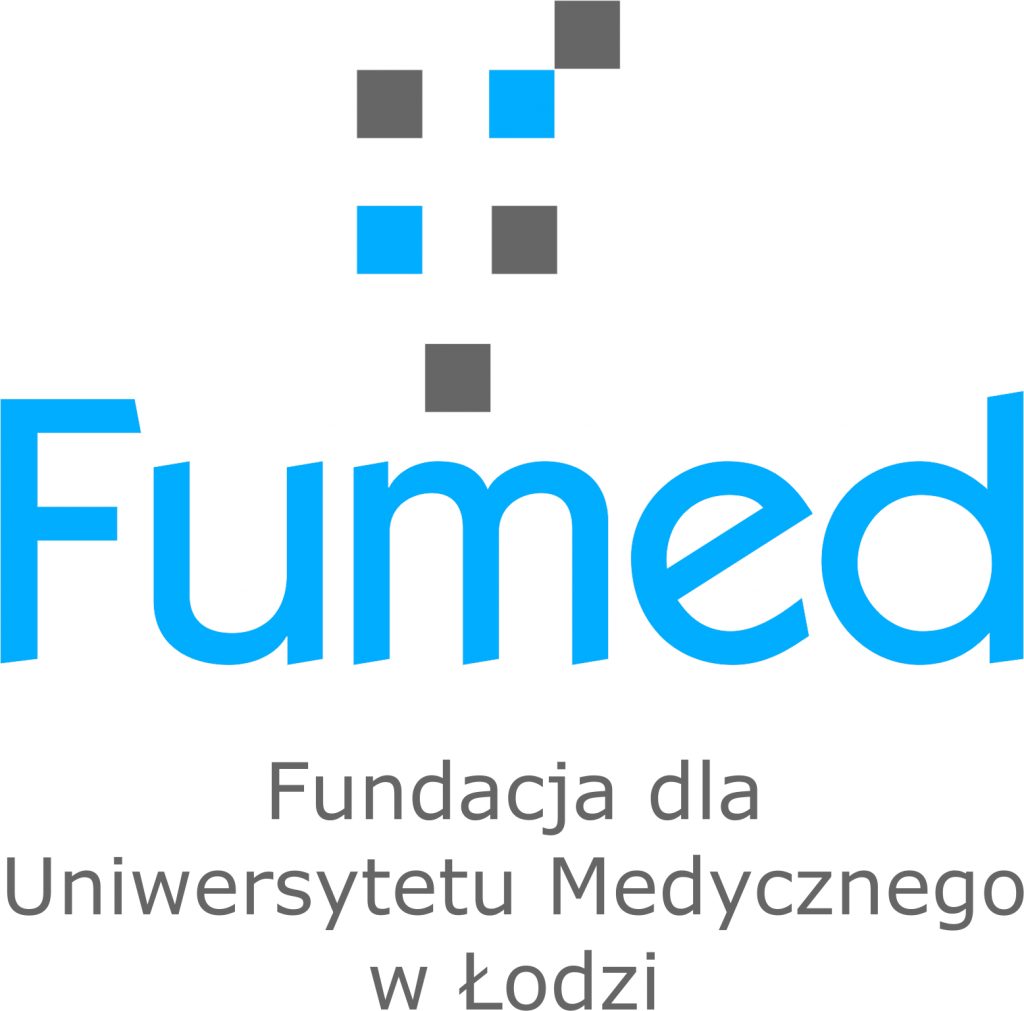 The Foundation for the Medical University of Lodz was established to support the activity and development of the Medical University of Lodz in the area of education and didactics. It supports students’ activity as well. By implementing its projects, it integrates the academic environment and also takes care of the positive image of the University.
The Foundation for the Medical University of Lodz was established to support the activity and development of the Medical University of Lodz in the area of education and didactics. It supports students’ activity as well. By implementing its projects, it integrates the academic environment and also takes care of the positive image of the University.
